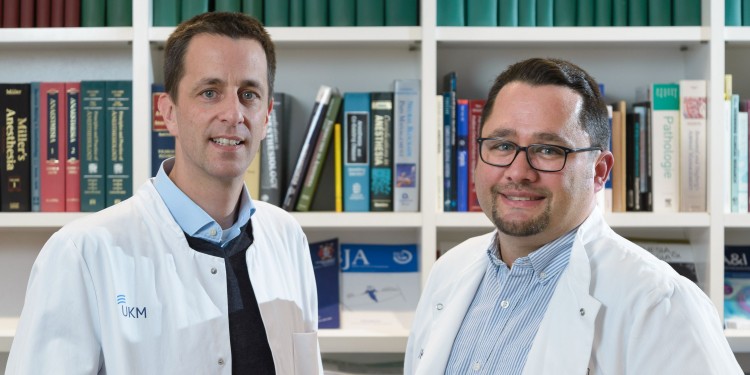
German Research Foundation approves new Clinical Research Group
They are quiet - and in many cases fatal: systemic inflammatory reactions such as sepsis are the third most frequent cause of death in Germany. Despite the high number of cases worldwide of about 19 million per year, there are still large gaps in the understanding of the underlying disease processes as well as in the development of treatment options. A new scientific network at the University of Münster has set itself the goal of closing some of these gaps: The clinical research group entitled "Organdysfunktion im Rahmen systemischer Inflammationssyndrome" (Organ Dysfunction in the Context of Systemic Inflammation Syndromes) is funded by the German Research Foundation (DFG) with around four million euros over a period of three years.
The work of the KFO342 – as the interdisciplinary group is known in the DFG register – should ultimately lead to the development of new therapy options for patients affected. For this, however, a causal understanding of the disease processes is indispensable. The Clinical Research Group's basic understanding is that successful research in the field of systemic inflammatory reactions must be seen as a joint task between basic researchers and clinicians. The scientists' focus is on the molecular, immunological and cellular signalling pathways relevant for inflammatory reactions and subsequent organ failure. "Basic findings from the laboratory will be transferred into clinical research", explains Prof. Alexander Zarbock, Director of the Department of Anesthesiology and Intensive Care Medicine at the University Hospital Münster and spokesperson of KFO342.
In order to achieve the necessary networking, under the leadership of Prof. Alexander Zarbock and Dr. Jan Rossaint, the head of the research group, many institutions of the University of Münster and the University Hospital will cooperate: In addition to the Clinic for Anaesthesiology, the following institutions are involved in the new cooperation: Medical Clinic D, the Institute of Immunology, the Institute of Virology, the Center for Molecular Biology of Inflammation, the Institute of Hygiene, the Max Planck Institute for Molecular Biomedicine, the European Institute for Molecular Imaging, the Clinic for Nuclear Medicine and the Clinic for Neurology. Close cooperation is planned with existing research alliances at the University of Münster, in particular in the field of "Cell Dynamics and Imaging". "We are pleased that the DFG has evaluated our funding proposal positively and that the work can now begin," Alexander Zarbock says looking ahead.
With funded research groups, the DFG enables scientists to devote themselves to current and urgent questions in their subject areas and to establish innovative working directions. The decision to establish Clinical Research Group 342 "Organ Dysfunction in the Context of Systemic Inflammation Syndromes" was taken by the Joint Committee of the DFG on the recommendation of the Senate. Depending on the scientific success, the funding body can extend the duration by another three years once.
